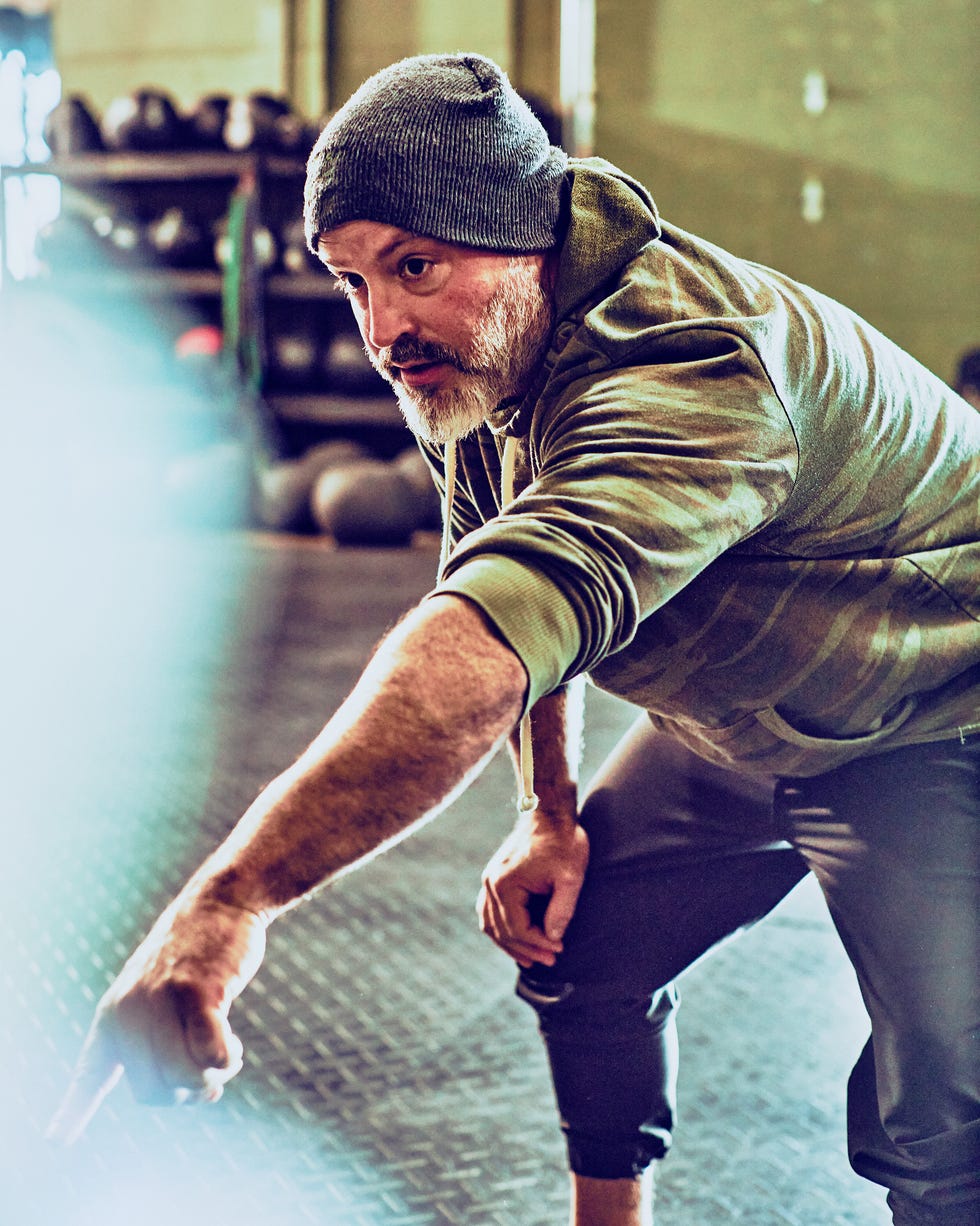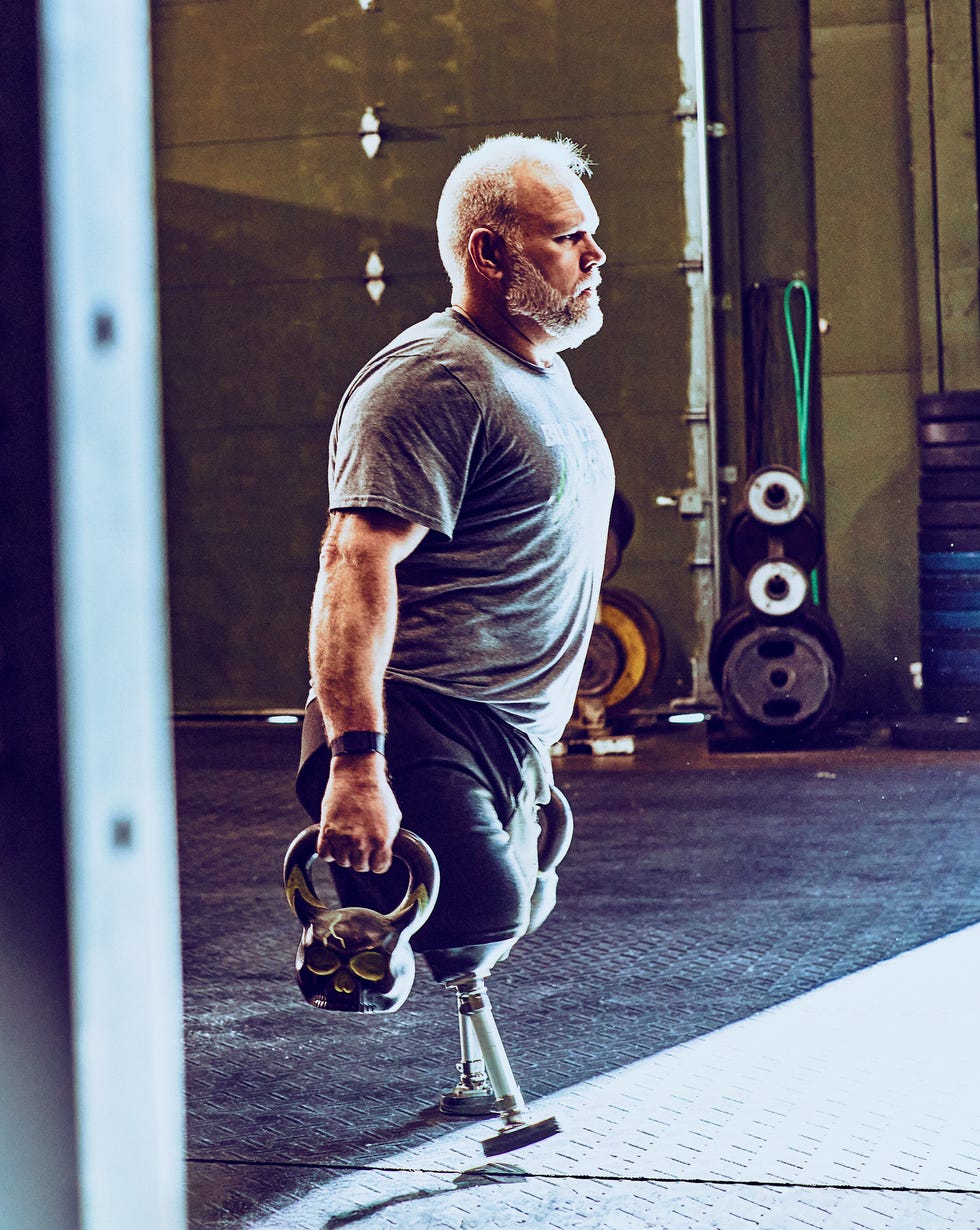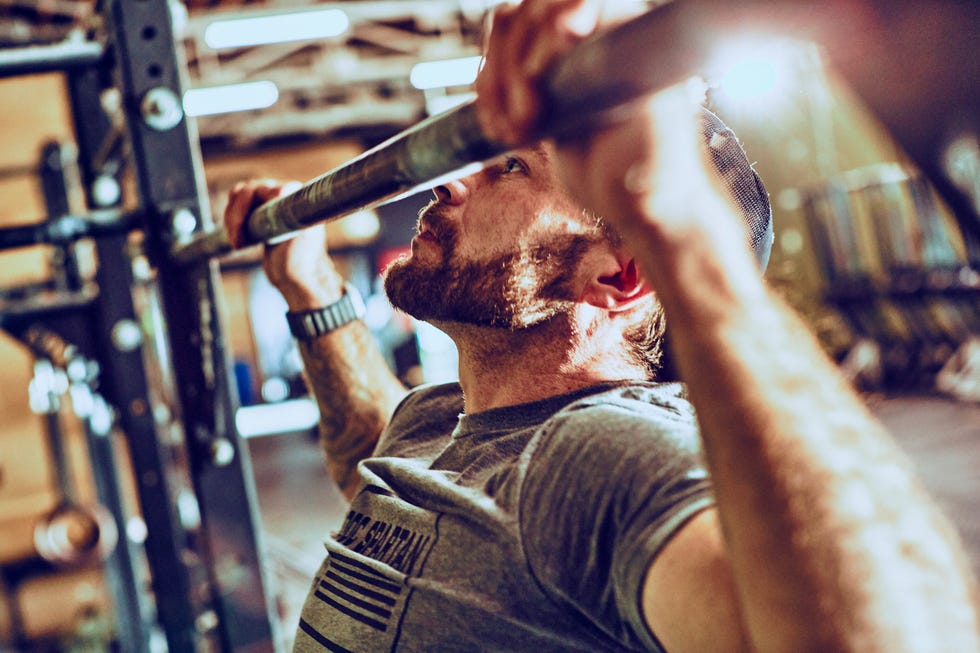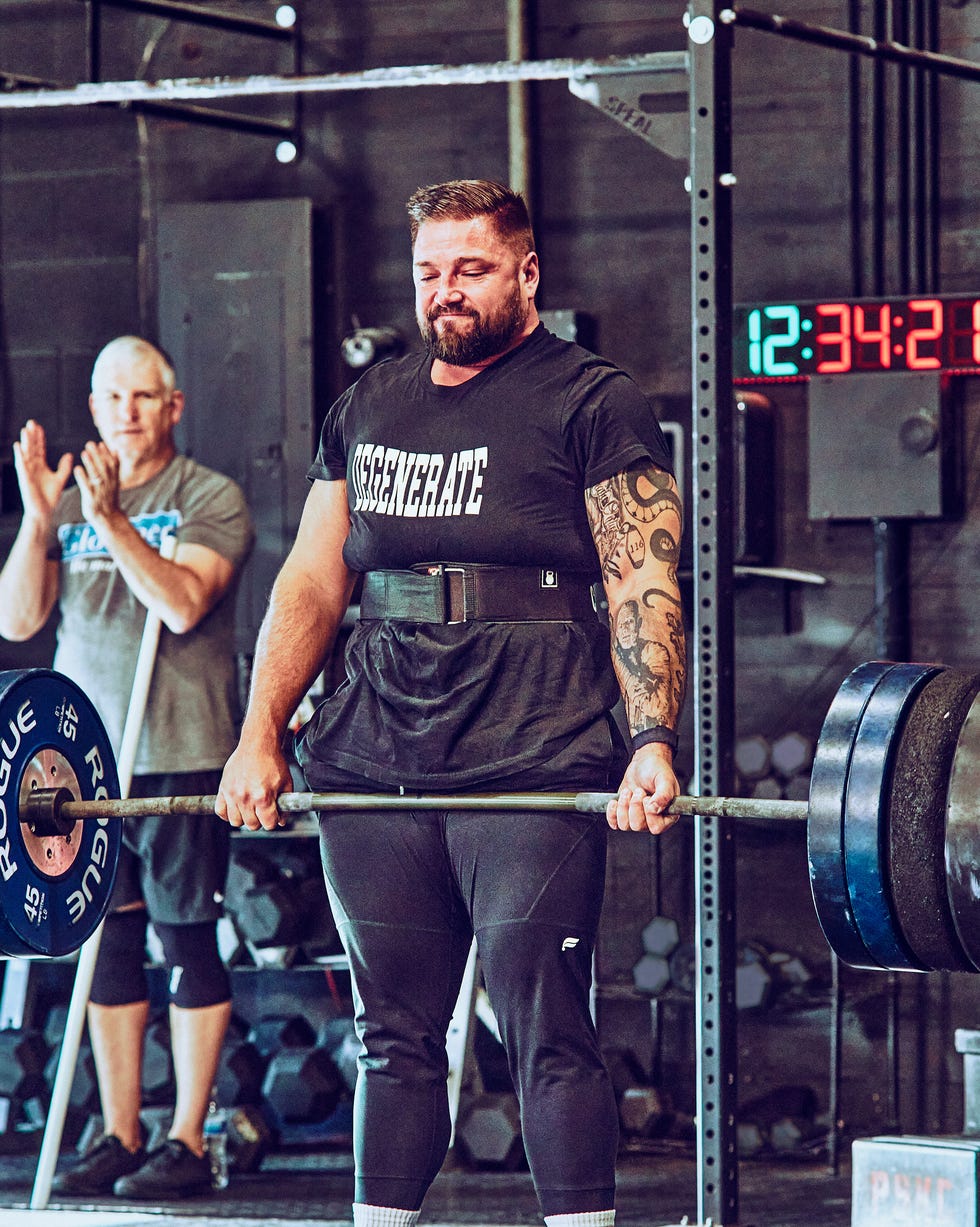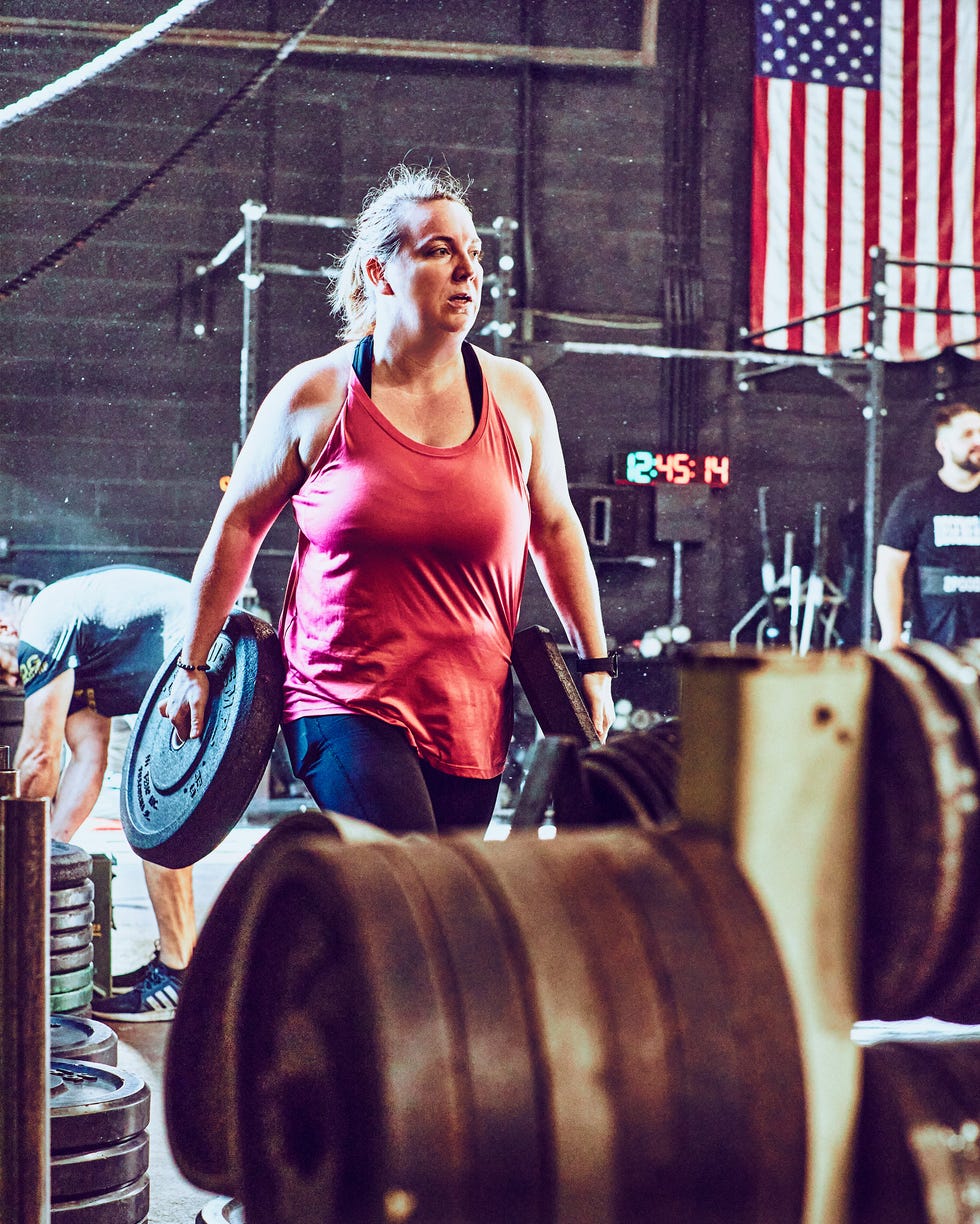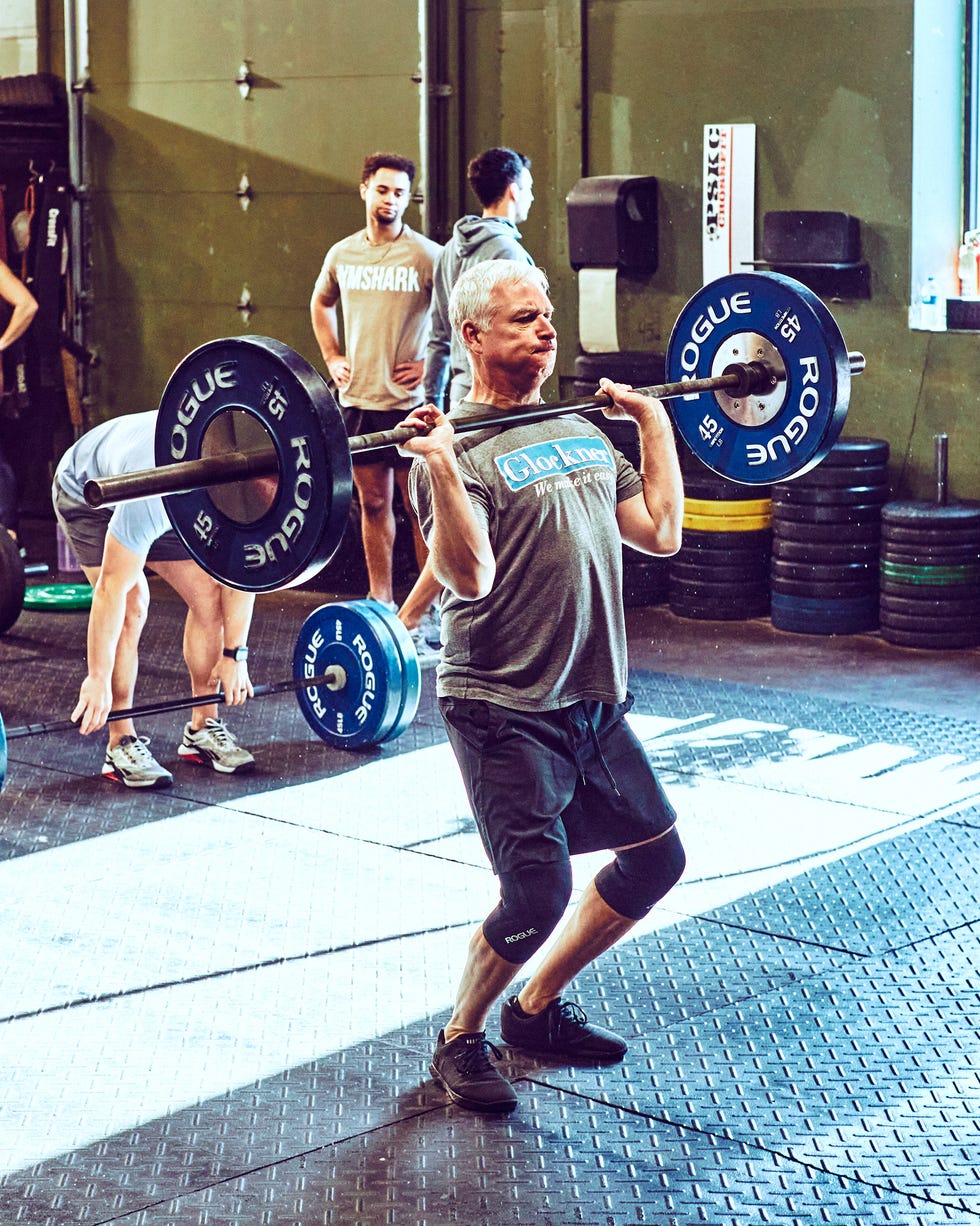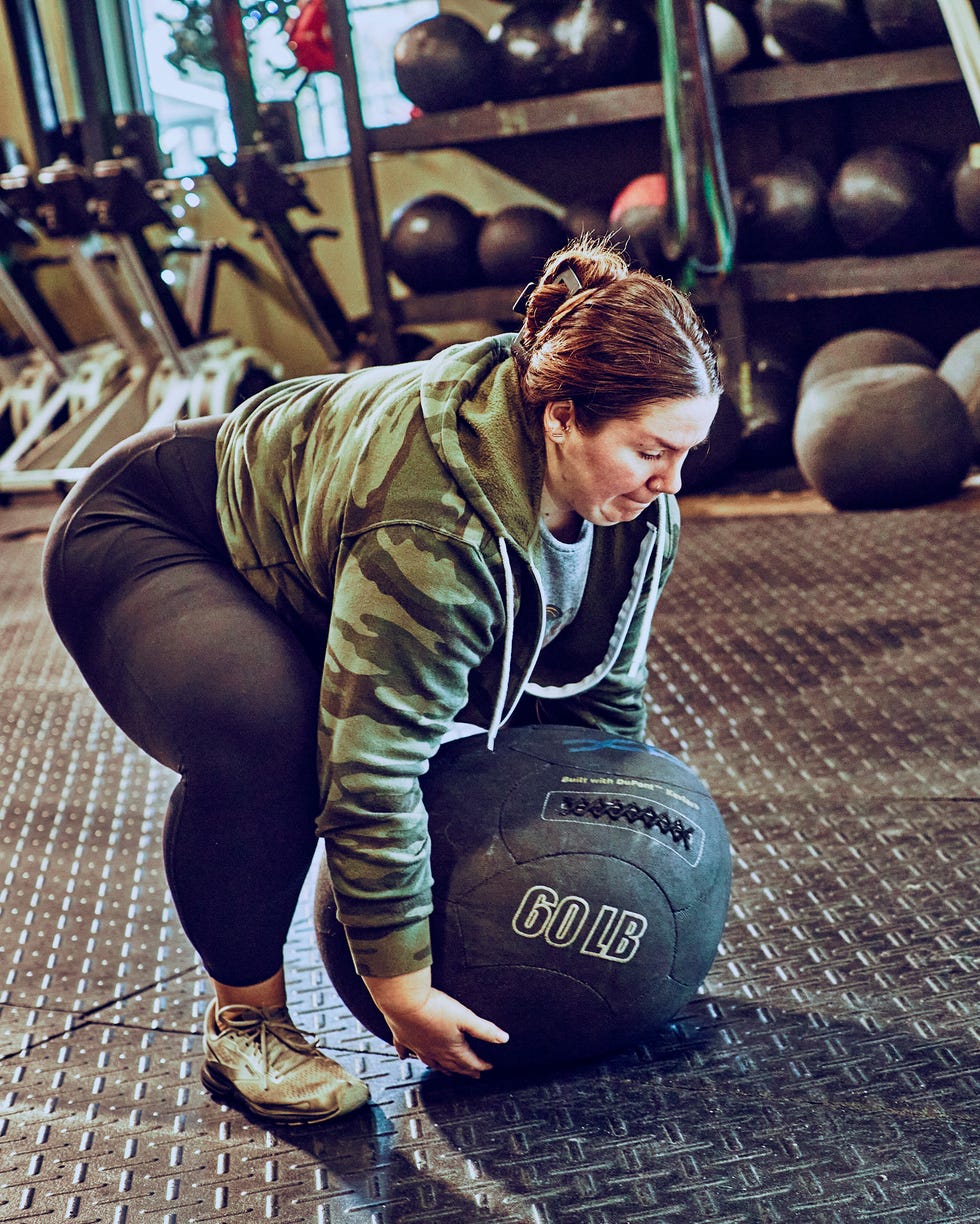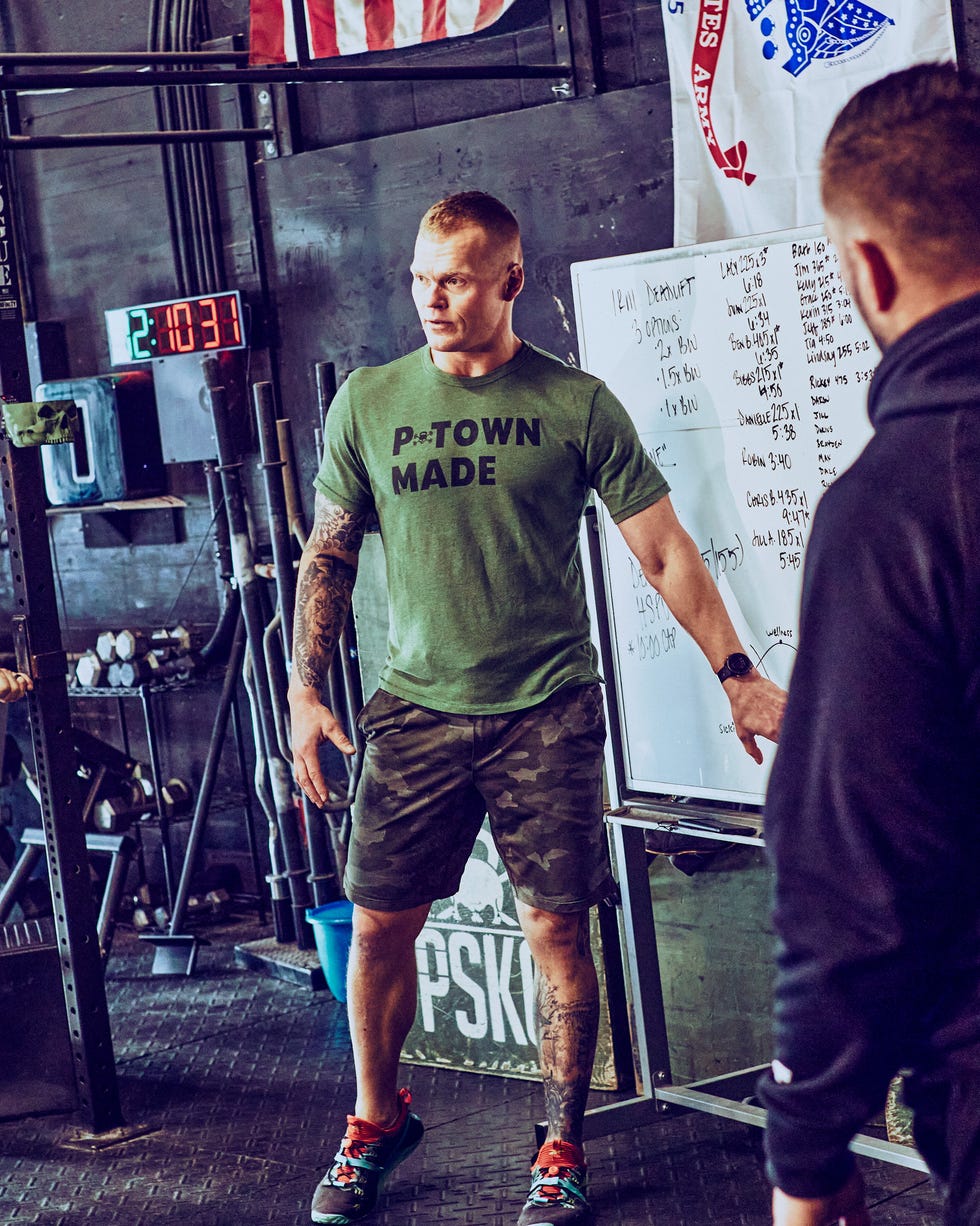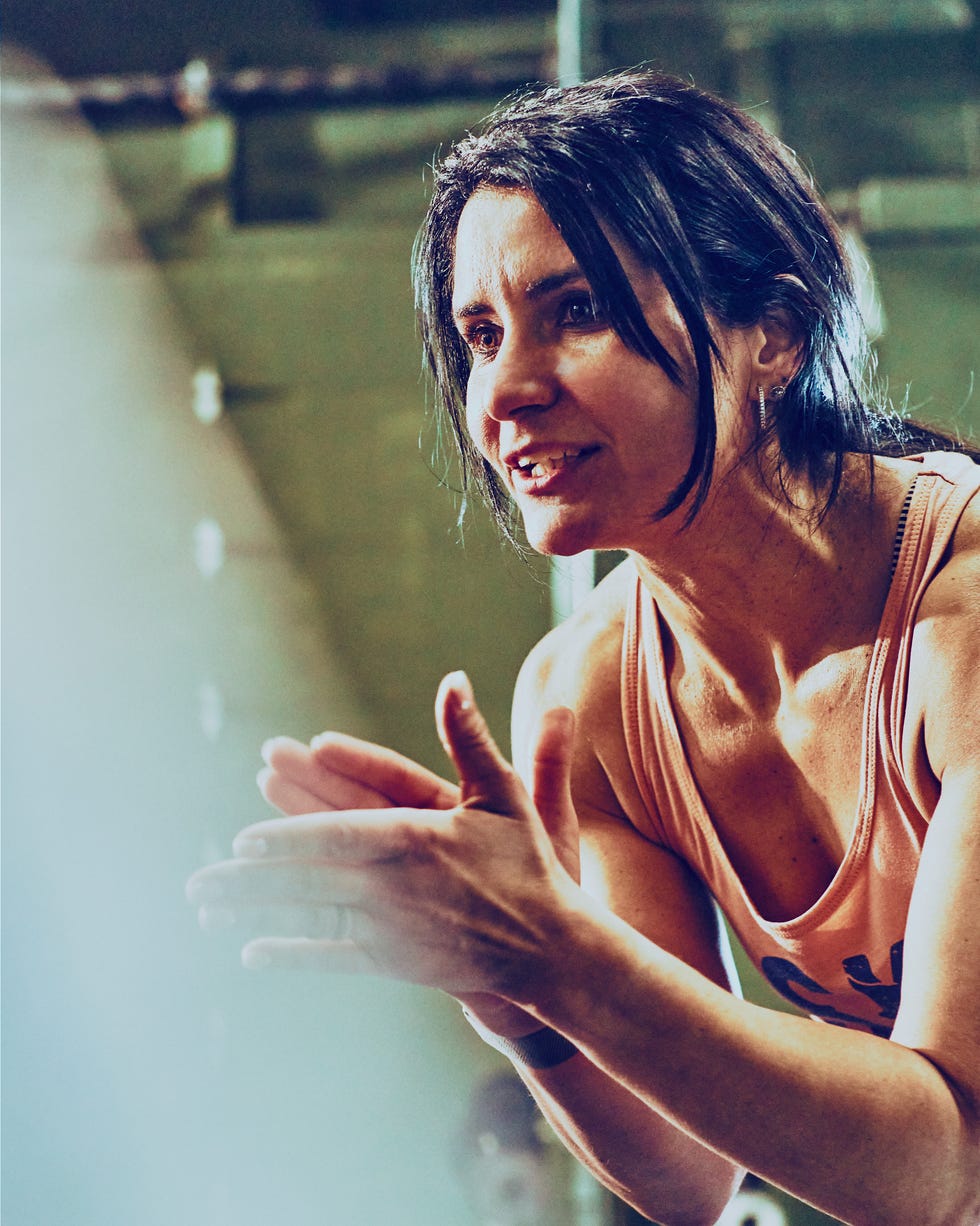PORTSMOUTH, OHIO, HOLDS, the unfortunate crown of “Opioid Crisis Capital of America.” The hilly city lies 100 miles east of Cincinnati, separated from Kentucky by the Ohio River. In the early 2000s, Portsmouth was littered with pill mills, where broken-bad doctors pushed OxyContin, fentanyl, and other addictive substances. Many of these docs were eventually imprisoned for illegal distribution of opiates. The aftermath was a city rife with “boarded-up businesses, high crime rates, and a complete void of anything positive,” according to native son Dale King.
King left Portsmouth in 2003 to join the army, where he spent five years, including two tours in Iraq. He returned to his hometown and was crushed to find it struggling. King’s motto was “No one is coming to save us,” which meant he needed to find a way for people to help themselves. He had trained on his own for years and discovered CrossFit through other soldiers in 2007. “CrossFit helps people make psychological gains as well as physical ones,” he says. In 2010, he opened the Portsmouth Spartan Kettlebell Club (PSKC) in a warehouse downtown and charged $5 per workout.
At PSKC, King and his staff have embraced what they call the Portsmouth Method, a combination of behavioral therapy and CrossFit. He’s also layering in nutritional guidance from MetFix, CrossFit founder Greg Glassman’s newest venture, which seeks to battle chronic disease with nutrition and exercise. “The most important part of recovery is effort, and we train that,” says King, 44. “We focus on partner and team workouts to focus on skills such as communication, teamwork, and accountability.” The lessons learned inside the gym reinforce resiliency outside.
At his gym, King hasn’t merely welcomed people battling addiction; he’s hired several as staffers and has contracted with local counseling facilities and prisons to provide regular exercise as a rehabilitation method.
Multiple other businesses followed King’s example in opening up downtown, eventually leading to a revitalization of the area that has Portsmouth residents optimistic for the first time in decades. “To see the domino effect has been awesome,” he says. “In a town devastated by weakness, we chose strength.”
PSKC has 120 members, many of whom are there to “get after it” on a brisk afternoon just before Christmas. This is the usual 12 p.m. workout for a group that calls itself the Nasty Nooners, and on the menu is attempted PRs in the deadlift after two months of training, then a WOD called Diane (21-15-9 reps of deadlifts and handstand pushups for time). Amid the clanging and grunting emerges an unmistakable spirit. “We’re as much a social center as a fitness club,” says King.
SPARTAN KETTLEBELL CLUB
DALE KING
King started his reintegration into civilian life by working out with kettlebells. “I got kicked out of the gym for carrying in my own kettlebells,” he says. But that led to an offer to teach others. “High-intensity exercise has positive physiological benefits,” especially, he stresses, when performed in “small teams.” The collective effort has “an effect on results—you feel part of something bigger.” During this session, King goes for a deadlift PR of 505 pounds and just misses. The Nooners fist-bump him anyway.
DARIN LISTON
In 2020, an accident at Liston’s railway job caused the amputation of both his legs above the knee. It would’ve been easy to fall into addiction. Instead, the 49-year-old joined PSKC, having heard of the gym’s Some Assembly Required program. “Three days after I got my prosthetics, I was here,” he says. “I told Dale, ‘I don’t know if I can do this.’ He said, ‘I don’t know either, but we sure can try.’ Because of him, I’ve never felt insecure here.” Liston modifies workouts as needed, swapping out deadlifts for bench presses or using sandbags during power cleans. “The mental aspect is so huge,” he says of the workouts. “I haven’t talked to any shrinks. I just come here and work the demons out.”
RICKY SHAW
Shaw is a coach at PSKC and emblematic of the changes the gym has wrought in the community. An addict his whole life—marijuana, opiates, meth—he was imprisoned and sent to multiple rehab centers. Through PSKC, he began doing CrossFit. “It helped me get out of my head,” he explains. “The only thing you think about is the next rep.” Shaw once had trouble climbing a flight of stairs, but on this day he deadlifts 455 pounds. The struggle never ceases, he says, but kicking the habit “gets easier when you have the classes and all these people around you who care.”
MAX BYLES
“I am a product of the opioid epidemic,” says Byles, a Portsmouth native who was hooked for years until he got clean in 2012. He now serves as a chemical dependence counselor when not putting up 700-pound deadlifts. “Social work values the importance of human connection and helping people find what works best for them,” he says. “CrossFit, and especially the Portsmouth Method, is great at adapting as needed.”
SARAH WALKER
Walker is a paramedic who still often deals with drug-related health emergencies. “We see the same people all the time in the ambulance,” she says. Walker is also a Nasty Nooner newbie, and this session is the first time she completes Diane without compromise. She is the last to finish, but she does every rep, showing the dedication that has enabled her to lose 40 pounds in nine months. “You don’t get nearly this kind of encouragement in other gyms.”
JIM DONNALLY
Straining to get his first-ever muscle-up, Donnally, a 60-year-old the others call the “Gray Ghost,” knows he can rely on the PSKC team to be there until he succeeds. “They never give up on their end of the bargain,” he says. “I’ve been to many CrossFit gyms, but none have the quality of instruction and deep sense of care that PSKC does.” Donnally was part of a group of businessmen and -women who helped King revitalize Portsmouth while working out in the noon class. “We gathered in the gym, developed a vision, shared it, and rebuilt the town from right here.”
JILLIAN WERRING
“The term we use is mutual suffering,” says Werring, PSKC’s communications manager. That explains why she feels so at home after a decade at the gym. “I was severely overweight and badly needed stress relief. I discovered this gym and found people who gave a shit—that’s not something I had growing up.”
RICKEY ELLIS
The man leading the Nasty Nooners class is a longtime Crossfitter, Ricky Ellis, who came east from Washington State. “I was picky,” he says, “and the level of coaching here caught my eye.” So did the gym manager, Monica Sa, who is now Ricky’s wife. “They are determined to be part of something bigger here, not just the gym.”
MONICA SA
Brazilian Native Sa came to Portsmouth as an exchange student and wound up switching careers from teaching math to teaching Crossfit. Today, she hits a PR of 300 pounds in the deadlift, a feat that exemplifies why King made her gym manager. “People tell me all the time how this place has saved them,” she says. “I had no idea why people did drugs. I would think, ‘just get it together.’ I’m so ashamed now that I’m immersed in it—working here has humbled me. I’m so thankful I was brought into their lives.”
This article originally appears in the March/April 2025 issue of Men’s Health.
SUBSCRIBE
Read the full article here




